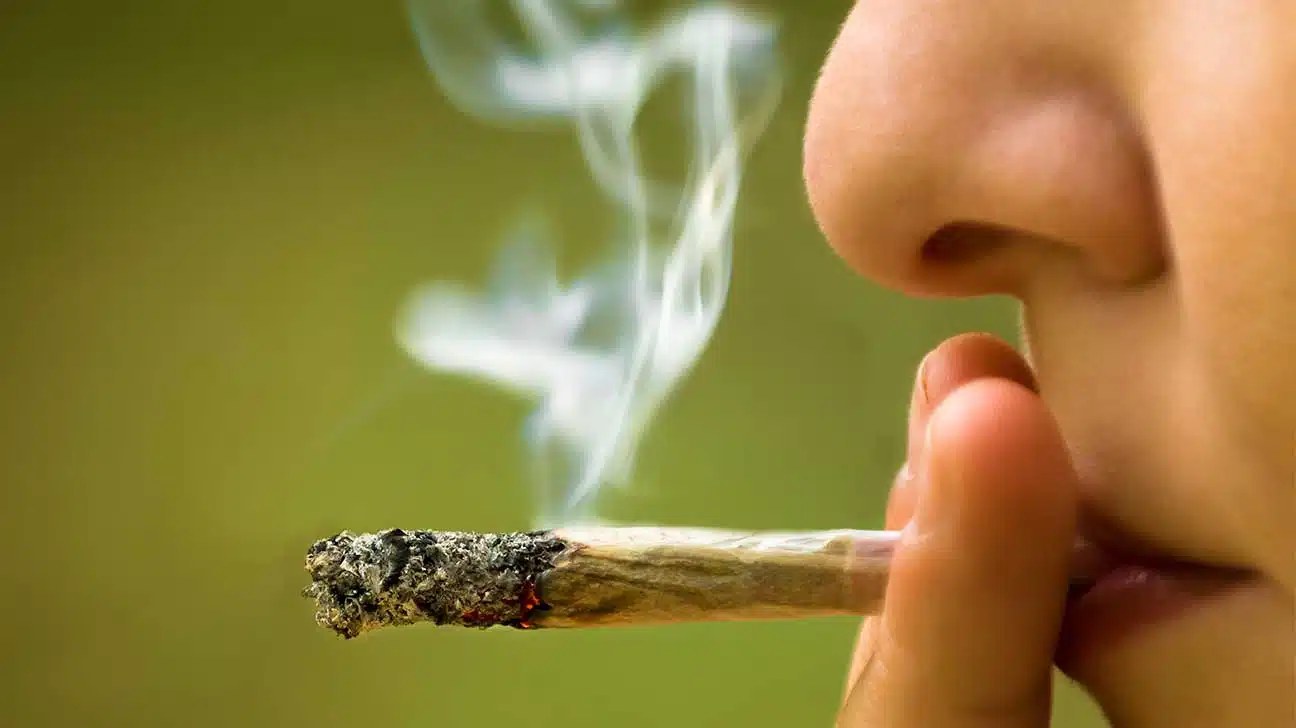
New research by one of the top neuroscientists in the U.S. shows that teenagers’ use of marijuana could have an impact on their brain’s endocannabinoid system, impairing brain development.
The study is particularly significant as more states legalize both the medical use and the recreational use of marijuana.
Since 2012, 21 states, Washington, D.C., and Guam have passed laws allowing the sale and use of recreational marijuana. Marijuana is a controlled substance and illegal at the federal level.
The study is also significant because of its contribution to the conversation surrounding research showing lower IQs in adults who used marijuana as teenagers.
Marijuana’s Effects On The Developing Brain
According to data from the Centers for Disease Control and Prevention (CDC), teens who use weed are more likely to drop out of high school and not get a college degree.
Scientists have been working to find the biological link to support that data, including the researchers behind this most recent study out of the University of Illinois at Chicago.
The team of researchers is led by top neuroscientist Kuei Tseng, who has been studying the adolescent brain for decades.
Tetrahydrocannabinol (THC) And The Developing Brain
The research involves injecting some adolescent rats’ brains with THC, the impairing or mind-altering compound in cannabis.
The researchers sound a buzzer, then send a mild electric shock to the rats, who momentarily freeze up. After a while, the researchers stop sending the shock following the buzzer.
The rats without the THC stop freezing up pretty quickly, learning that the shock isn’t coming.
The rats with the THC continue freezing up when they hear the buzzer, even into adulthood.
The Endocannabinoid System
Tseng and his team have discovered that the parts of the brain affected in the study are the prefrontal cortex and the brain’s endocannabinoid system (ECS).
The endocannabinoid, or endogenous cannabinoid, system plays a key role in regulating many bodily functions and processes.
These include:
- mood
- memory
- sleep
- fertility and reproduction
- appetite
However, Tseng’s research has revealed that the ECS also is key to developing a mature, adaptable brain from adolescence into adulthood.
The prefrontal cortex, the part of the brain responsible for working memory, decision-making, planning, and other executive functions, isn’t fully developed until age 20 to 25.
Endocannabinoids are made by the body, but the cannabinoid THC mimics these natural cannabinoids and interferes with the brain’s processing and development, the research shows.
Now, a former researcher at Tseng’s lab is now doing a study at the UCLA Center for Cannabis and Cannabinoids to see if Tseng’s results can be reproduced in humans.
Is Weed Safe?
Research from Tseng’s team provides useful information in the area of marijuana use — an area where, scientists and lawmakers agree, more research is needed.
Many people consider marijuana to be a safer drug than cocaine, methamphetamine, or opioids because it is a “natural drug” and you can’t die from a marijuana overdose.
However, there are significant negative side effects to using marijuana.
In addition, many people use marijuana with alcohol or other substances, increasing the risks associated with those substances.
Marijuana’s Long-Term Health Effects
The negative long-term health effects of marijuana can affect the brain, heart, and lungs.
Effects On The Brain
Marijuana can negatively affect neural development in adolescents and impair memory, learning, coordination, reaction time, and decision-making in people of all ages.
Some studies have also linked marijuana use with long-term mental health effects, such as occasional paranoia, and the development of anxiety, depression, or suicidal thoughts.
Effects On The Heart
The use of marijuana can increase heart rate and blood pressure, contributing to an increased risk of vascular diseases, including strokes and heart disease.
Effects On The Lungs
Smoking weed can damage the lungs, including causing scarring of the small blood vessels.
The Addictiveness Of Weed
About one out of every 10 people who try this drug will develop an addiction to marijuana, according to the Substance Abuse and Mental Health Services Administration (SAMHSA).
The number is even higher for adolescents and teenagers, with one out of every six going on to experience cannabis abuse.
The CDC reports that marijuana use disorder is fairly common, too, with 33% of all people who use marijuana having this mental health condition.
Increasing Potency In The Marijuana Industry
The amount of THC found in marijuana has increased steadily over the past several decades.
THC amounts were more than three times lower in the 1990s than they are today. This increases the effects on the brain, including an increase in the risk of addiction.
A 2022 article in The New York Times reported that teens were regularly using weed with THC levels of 90%, causing a host of negative health effects, including vomiting, loss of consciousness, and psychosis.
Find Treatment For Substance Abuse Today
Addiction is a chronic but treatable mental health condition. Contact or visit AddictionResource.net to learn about recovery options.
Addiction Resource aims to provide only the most current, accurate information in regards to addiction and addiction treatment, which means we only reference the most credible sources available.
These include peer-reviewed journals, government entities and academic institutions, and leaders in addiction healthcare and advocacy. Learn more about how we safeguard our content by viewing our editorial policy.
- Biological Psychiatry
https://www.biologicalpsychiatryjournal.com/article/S0006-3223(15)00869-0/fulltext - Centers for Disease Control and Prevention (CDC)
https://www.cdc.gov/marijuana/what-we-know.html - Substance Abuse and Mental Health Services Administration (SAMHSA)
https://www.samhsa.gov/marijuana - U.S. News & World Report
https://www.usnews.com/news/best-states/articles/where-is-marijuana-legal-a-guide-to-marijuana-legalization - WBEZ Chicago
https://www.wbez.org/stories/teens-smoking-pot-how-bad-is-it-for-brain-development/145d6006-5e59-426e-a03f-813cff79efb6

